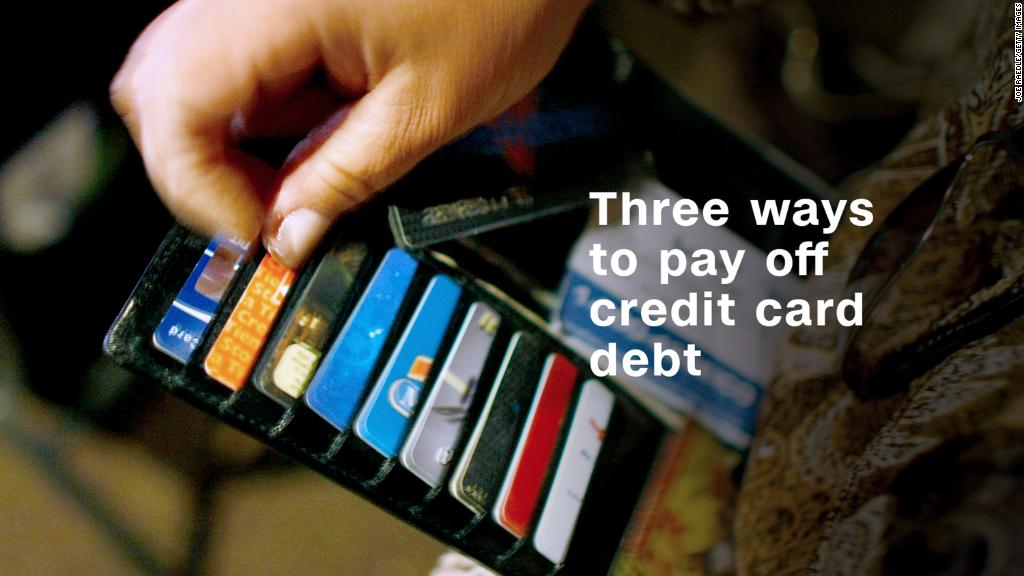
There's plenty to crow about in the economic picture right now: the stock market is charging ahead and the economy is expanding. But the bad news is that credit card debt is on the rise.
Nearly half of Americans carry credit card debt, with an average balance of $15,654, according to an analysis by NerdWallet, based on data from the Federal Reserve Bank of New York and the U.S. Census Bureau.
Credit card debt continues to be one of the costliest kinds of debt for us. Households pay an average of $904 a year in interest alone, assuming an average annual percentage rate of 14.87%.
And the price is bound to go up. If the Federal Reserve makes its anticipated rate increase, that average cost of credit will go up to $919 a year.
"Finding a way to put money toward paying off debt, especially high interest debt, is the best way to free yourself from the vice grip debt can have on your budget," said Kimberly Palmer, personal finance author and writer at NerdWallet.
What does living amid massive credit card debt mean for you? Let's break it down.
How much credit card debt do I have?
While credit card debt is among the smallest piece of American's total debt -- mortgage debt, for example, makes up 67% of our total household debt, student loans 10%, auto loans 9% and credit card debt accounts for 6% -- there are more credit card accounts than other forms of debt, according to the Federal Reserve.
Our credit card debt totals $905 billion, according to NerdWallet, which includes those cards paid off and those still outstanding. That's an 8% increase over last year.
How did I get this credit card debt?
One of the biggest drivers of our credit card debt is that cost of living has been outpacing income growth.
In addition, because of our inadequate savings, many people have no way to pay for big expenses -- like medical bills or emergencies -- other than their credit card, according to NerdWallet's American Household Credit Card Debt Study.
Several major expenses grew faster than any others in the past 10 years, according to the study: medical expenses went up by 34%, food and beverages went up by 22%, and housing increased by 20%.
Food and beverage, arguably, you could cut back on. But the other expenses are big chunks of Americans' spending. Just the medical costs alone can throw your debt out of whack.
The average out-of-pocket medical spending per person was $1,054 according to a study by the Peterson Center on Healthcare and the Kaiser Family Foundation. If that all went on the credit card with only minimum payments made, that could result in $471 in interest and take 70 months to pay off.
There are two other situations that the study found increased the interest paid on a credit card: being self-employed and owning a home. The first results in more uncertainty in income, the second in greater responsibilities.
How do I get out of debt?
Many people report they have credit card debt because of irresponsible spending. According to the survey, the largest group of respondents, 41%, said that they are simply spending more than they should.
That's a bit of good news because it means that by pulling back on discretionary spending, you can reduce your debt.
But other common reasons for being in debt included paying for emergencies, paying for necessities not covered by income and medical expenses.
Those are more troublesome, because in many cases you don't have control over those expenses. But you can control how you pay for them.
"Charging medical bills to credit cards can seem like a simple solution, but it can actually lead to even bigger headaches down the road," Palmer says. "That's because many credit cards have high interest rates, which means the amount owed can quickly snowball out of control. Instead, ask your doctor or hospital if you can arrange an interest-free payment plan with them."
Also: be prepared for emergencies. Ensure that you have at least $1,000 set aside in an emergency fund. Also, take advantage of an employer sponsored health savings account or flexible spending account to keep you from taking on debt for medical expenses.
